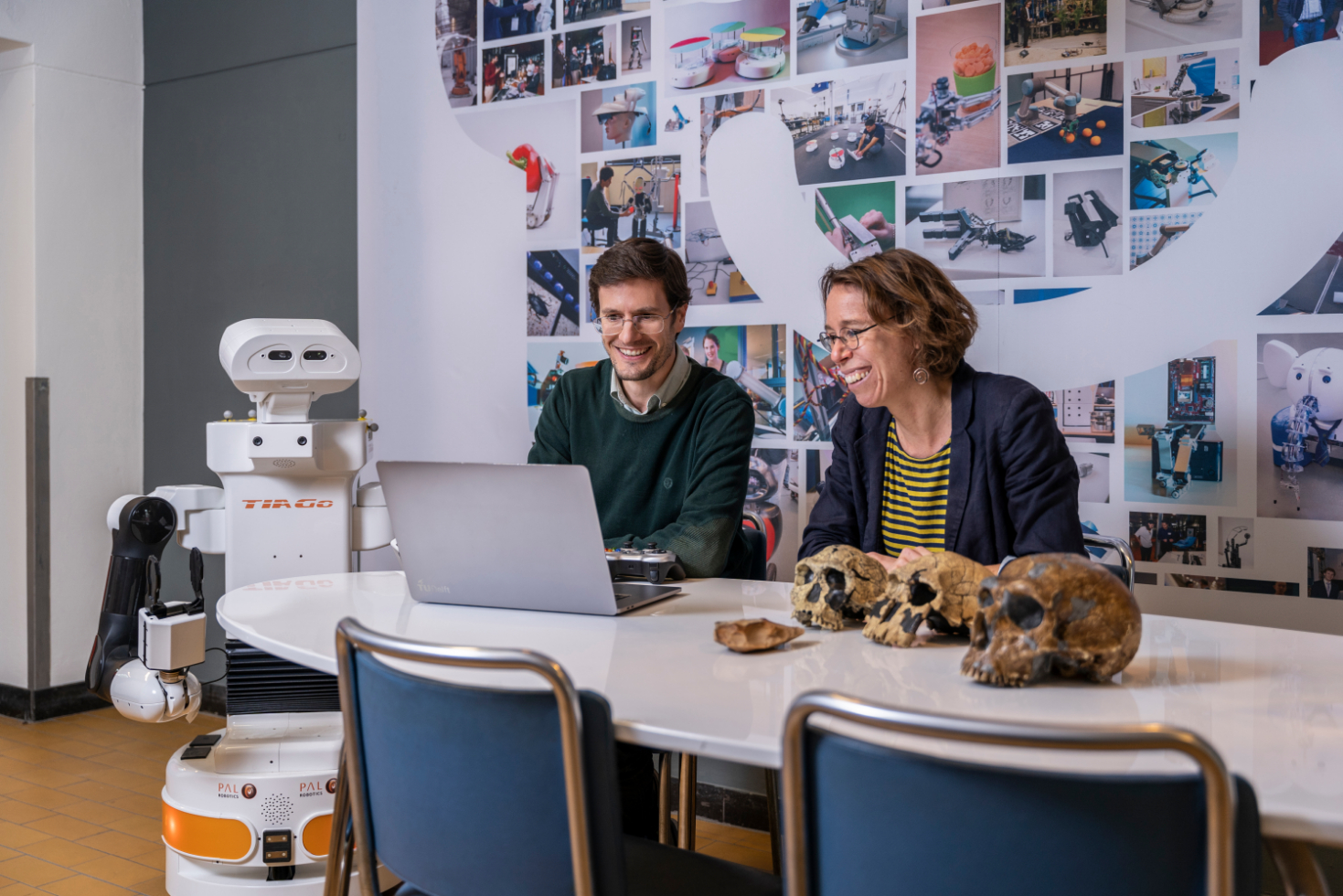Can robots invent tools like our ancient ancestors did?
TU Delft uniquely combines archaeology and robotics to shed light on the challenge of ‘awareness’
How did ancient humans learn to make tools? And can we apply that knowledge to help AI-based robots learn creative skills? Carlos Hernandez Corbato (Department of Cognitive Robotics) and Geeske Langejans (Department of Materials Science and Engineering) are heading up the TU Delft part of the multi-national METATOOL project, which is a unique combination of archaeology, neuroscience and robotics.
This highly experimental and novel project combines symbolic models with computational models of synthetic metacognition and awareness. “Making new tools to resolve a problem requires an extended form of awareness, and there is a parallel between our first toolmaking ancestors and robots of the future,” explains Langejans. Hernandez and Langejans were already collaborating within our Faculty of Mechanical Engineering on tool use and tool making, and the cognitive requirements that make that possible and this idea became the binding factor for METATOOL. Hernandez: “How are we going to demonstrate our theory of awareness in terms of a concrete example of technology that does something useful? By using it for robots to be able to invent tools!”
The METATOOL project is a consortium of seven research institutions and companies from four different countries, and it has received 4 million euros from the European Innovation Council (EIC), a Pathfinder grant. For more information see the official press release.

C. (Carlos) Hernandez Corbato
- +31 15 27 81053
- C.H.Corbato@tudelft.nl
-
34.F-1-700


